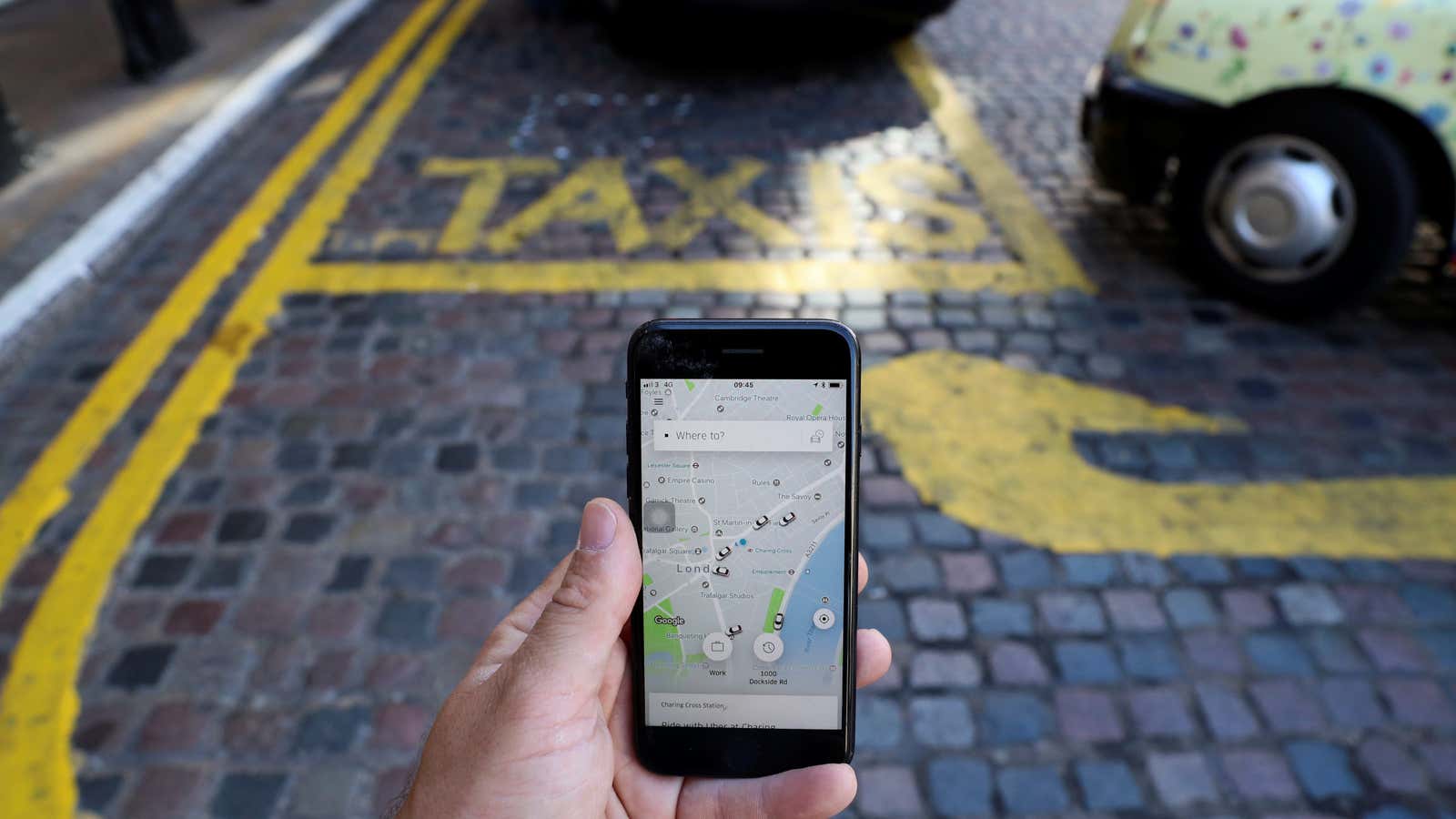Ola’s first week in London should set off alarm bells for rival Uber.
On Feb. 12, only two days after its debut in UK’s capital, downloads of Ola’s app in the country hit an all-time high of 44,337, a recent report by Boston-based app intelligence firm Apptopia shows. In comparison, Uber averaged 13,471 daily downloads in February.
The Bengaluru-based company got a boost from the incentives it offered in London as part of the launch. For instance, Ola gave new passengers a £25 ride credit and its 20,000-plus drivers in the city got to keep 100% of the revenue earned in those initial weeks.
Ola received a 15-month licence to operate in the British capital in July 2019. By the time it drove into London, it had already made a mark in other cities in the country. It began operating in Cardiff in August 2018 and expanded to Birmingham, Bristol, Liverpool, and Reading. The company said it has completed roughly three million rides outside of London with around 11,000 drivers.
While Ola’s outstanding performance of the first few weeks didn’t sustain, it’s still neck-and-neck with Uber. By Feb. 26, daily downloads of Ola’s app hovered close to Uber’s daily average.
Uber’s losing ground
Before Ola’s arrival, Uber was the undisputed leader of the UK’s ride-hailing market. Between March 2018 and 2019, the app was downloaded 5.5 million times in the UK. In comparison, a group comprising six of Uber’s biggest rivals cumulatively saw a mere 2.5 million downloads.
However, Uber has faced its own woes for a while. Local taxi regulator Transport for London (TfL) declined to renew its licence in late November 2019 following safety concerns. This was the second time its licence was denied in the past couple of years. That’s not all. The UK supreme court is yet to decide whether Uber’s drivers are “workers,” which could greatly increase the company’s overheads and force it to reevaluate its business model.
Adding to the mess, Uber could also face a hefty tax bill if the UK tax authorities classify it as a transportation provider and not a tech platform.
Besides Ola, Estonian firm Bolt (formerly Taxify) is the only significant competition to Uber in the UK. However, Ola could change the game.
“When Bolt relaunched in London in June 2019, it never had a moment quite like Ola is having right now,” said Adam Blacker, vice-president of insights at Apptopia. “What I mean by that is that its mobile app performance metrics never surpassed that of Uber, like Ola has for the time being.”
